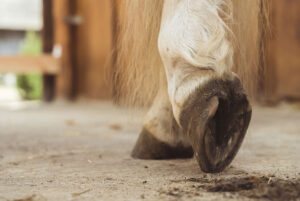Researcher: Work Objectively to Understand Equine Behavior
Think we’re getting close to finally figuring horses out completely? Well, we’re not. But the good news is that by working entirely objectively, equitation scientists are beginning to enter into a new dimension of understanding equine behavior. And that, according to a leading equitation scientist, will lead us into a "Golden Age" of horse training.
"Behaviorism has been reborn," said Andrew McLean, BSc, PhD, Dipl. Ed, owner and manager of the Australian Equine Behavior Center and co-author of Equitation Science. He spoke during the 2012 International Society of Equitation Science (ISES) conference, held July 18-20 in Edinburgh, Scotland.
He explained that "behaviorism"–which started in North America with Harvard University’s B.F. Skinner, PhD, in the 1950s but was lost in the 1960s–has been revised and improved and is now evolved into "learning theory." In learning theory, scientists attempt to comprehend the way individual animals acquire information and react to stimuli. It’s a theory that seeks to leave behind all our current notions of dominance, respect, and "pecking order," McLean said.
"We’ve been left with these new-age horse descriptors, like ‘this horse is an alpha mare,’ or ‘this one is dominant’ or ‘submissive,’ ‘respectful’ or ‘disrespectful,’" he explained. "But the trouble with all of these is that the spotlight is firmly on the horse’s character and not on the trainer
Create a free account with TheHorse.com to view this content.
TheHorse.com is home to thousands of free articles about horse health care. In order to access some of our exclusive free content, you must be signed into TheHorse.com.
Start your free account today!
Already have an account?
and continue reading.

Related Articles
Stay on top of the most recent Horse Health news with


















